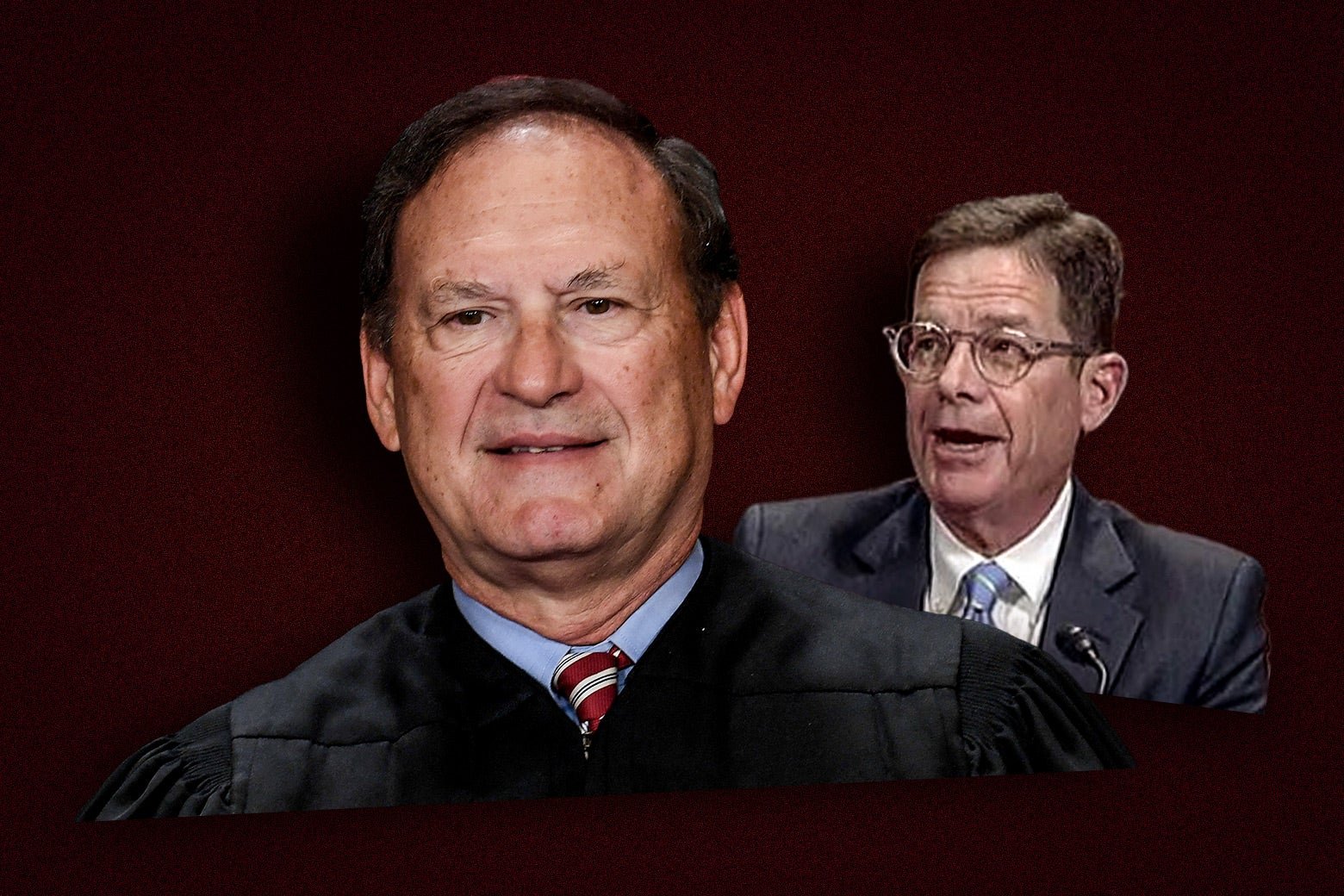When the Supreme Court overturned Roe v. Wade, it claimed to be removing the judiciary from the abortion debate. In reality, it simply gave the courts a macabre new task: deciding how far states can push a patient toward death before allowing her to undergo an emergency abortion.
On Tuesday, the U.S. Court of Appeals for the 5th Circuit offered its own answer, declaring that Texas may prohibit hospitals from providing “stabilizing treatment” to pregnant patients by performing an abortion—withholding the procedure until their condition deteriorates to the point of grievous injury or near-certain death.
The ruling proves what we already know: Roe’s demise has transformed the judiciary into a kind of death panel that holds the power to elevate the potential life of a fetus over the actual life of a patient.



Many ethical stances around abortion aren’t phrased around the right to life, because usually ethics has a pretty hard stance on that right. So the real ethical question isn’t about the unconditional right to life, It’s actually about your right to another person’s body or bodily autonomy.
Generally it breaks down to, just because a person requires the use of your body to survive does not mean you have a moral or ethical requirement to provide sustenance (your body) for that person.
Qoute from a nytimes article:
Phrasing it as right to life automatically discounts the real ethical question, does this being have a right to my body?
Thomson does directly address the right to life of the fetus in A Defense of Abortion, the underlying essay that the violinist parable comes from (it has several other allegorical arguments aside from this one that are, in my opinion, even better but weirdly don’t get referenced much). The violinist story only really addresses rape, but the others do not require a starting act of violence to make similar arguments.
She outright grants the life-from-conception argument. And argues for why it’s just not relevant by showing a series of examples that make plain the typical person’s instinct – that autonomy over your body is supreme to the right to life of another and refusing to be charitable to a stranger is not the same as murder.
In my mind, no one has ever come close to rebuking her argument, though many have tried. The fact that both pro-life and pro-choice people continue to argue about when abortion becomes unethical is very frustrating. I wish the whole “it’s just a clump of cells” crowd would shut up because that’s utterly unpersuasive to someone who believes in life from conception. It’s just a moot point. Even if the fetus is a full human being with all relevant rights from the moment of conception, abortion is still not murder; it is permissible.
I recommend the essay, it’s not a very challenging read (compared to the greater cannon of philosophical essays, at least). It’s probably been 15+ years since I last read it and it still lives strongly in my mind.
I appreciate the added context, but a bit thrown. I was trying to call out your comment that people don’t believe in a unconditional right to life, by trying to say it’s not the right to life that is questioned. But, you’re clearly well versed on the matter.
What part of the pro-choice movement do you think doesn’t believe in the unconditional right to life? Because to me, I don’t think anyone takes the stance that a fetus (baby?) that can survive on its own should be killed.
Or am I just being nit picky in your wording?
No one is advocating for killing babies. That’s kind of the point, though: abortion is not killing babies. If babies die after abortion, that isn’t murder. That’s just death. And whether or not the baby can survive post-abortion doesn’t factor into that, at least from a position of pure ethics.
But it’s preferable to not let the baby die. We didn’t deny it’s right to life. So if the pregnancy can be terminated without letting the baby die and without a serious adverse effect on the parent, we should do that. What’s fundamentally different after viability isn’t the morality, it’s just what is possible.
I’m pretty inarguably pro choice and I do not think we ought to ban any abortions. Yes, including late term, viable babies. The focus on viability is denying the unconditional right to life. It’s trying to negotiate about when that right emerges in order to make the arguments easier. And it’s an inherently weak strategy because it’s totally subjective. Even when the point of viability occurs is subjective.
If we want to keep babies alive, we should create incentives to prevent abortion and remove disincentives to carrying to term. In the case of a viable fetus, we should make sure the cost of giving birth is not higher than the cost of termination for someone who wants to not be pregnant anymore. But autonomy over your own body is always supreme over right to life. Always.
Not to even get into the fact that late term abortions are definitionally extremely complex , emotional, complicated situations where we definitely do not need the government imposing ridiculous catchall rules.